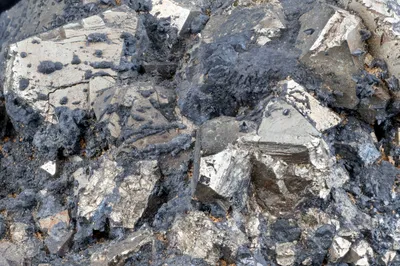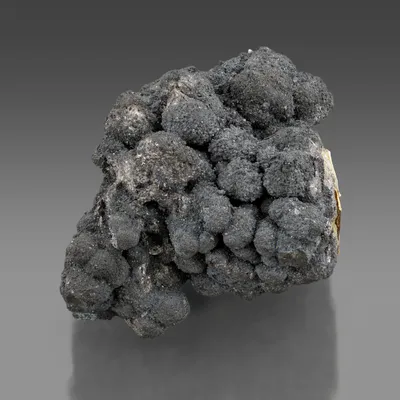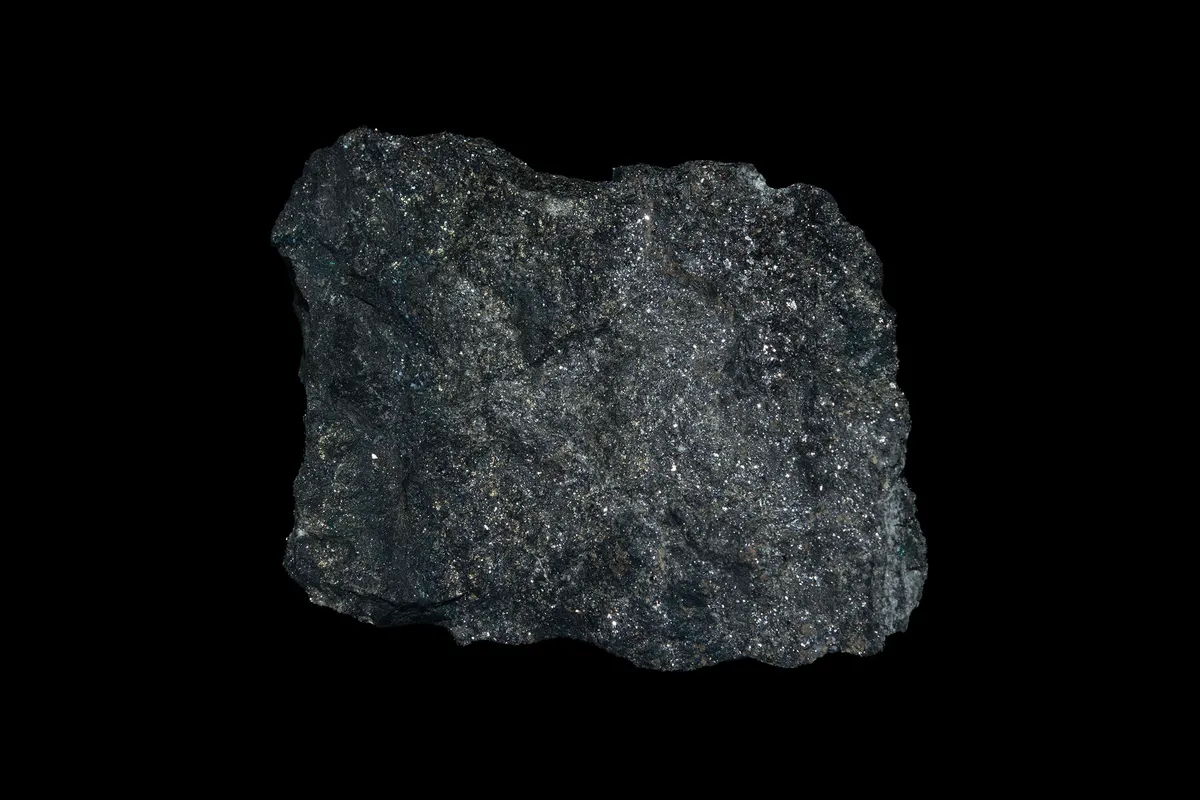
Image Credit: Malcolm Southwood
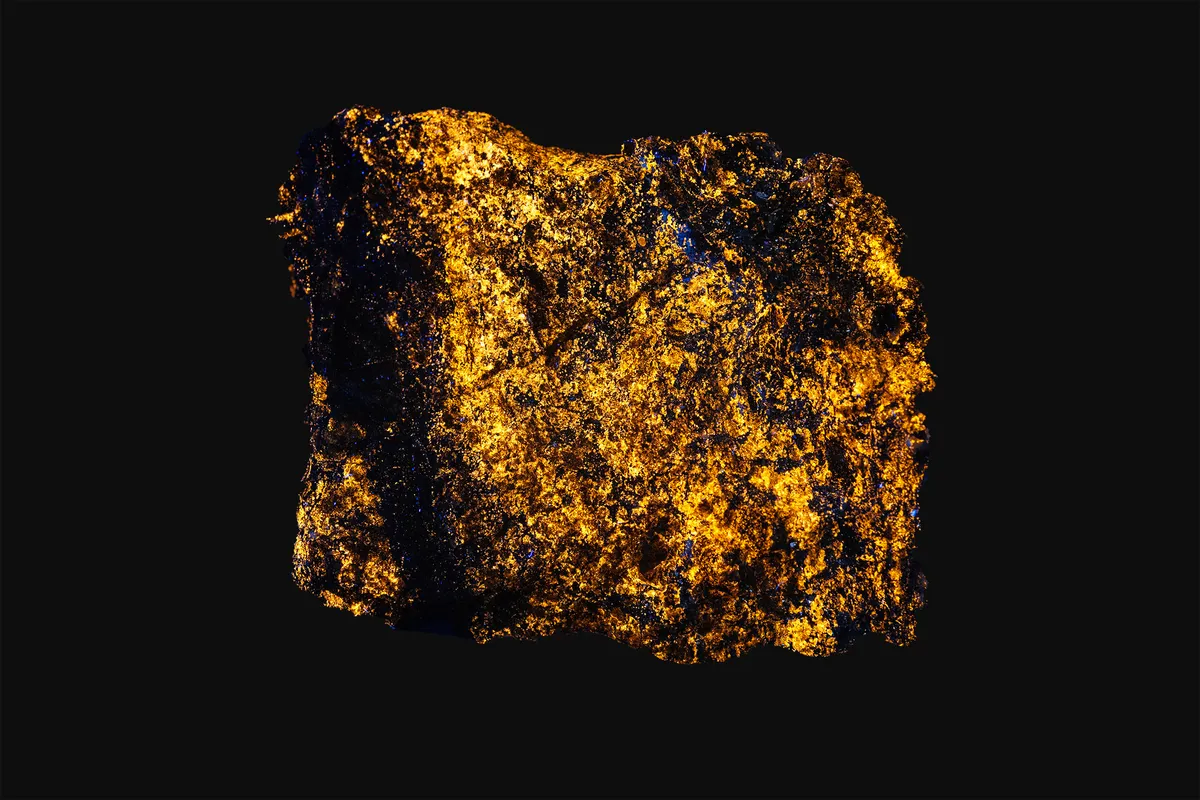
Image Credit: Malcolm Southwood
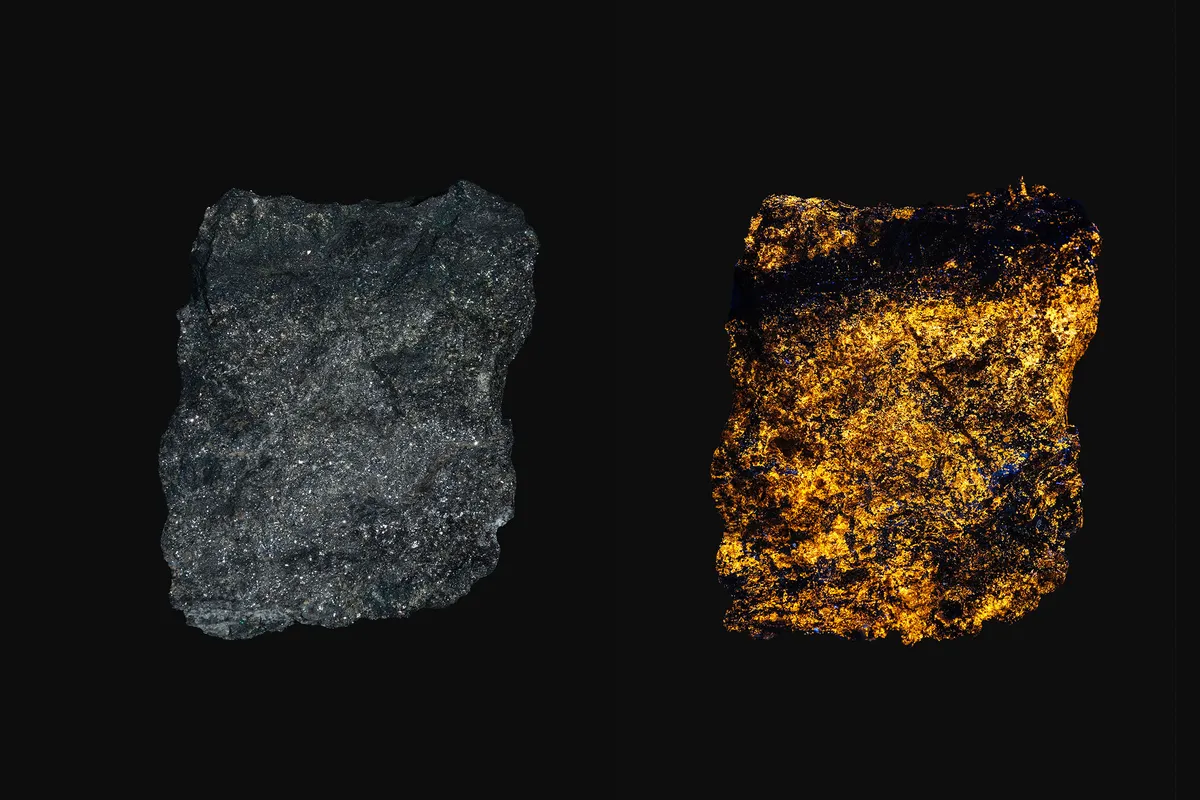
Image Credit: Malcolm Southwood
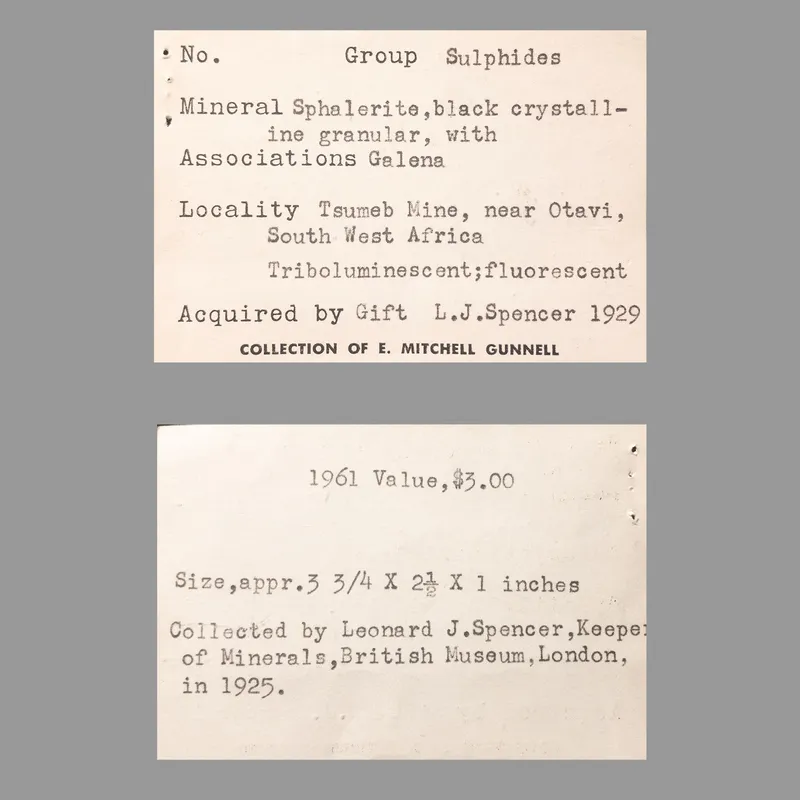
Image Credit: Malcolm Southwood
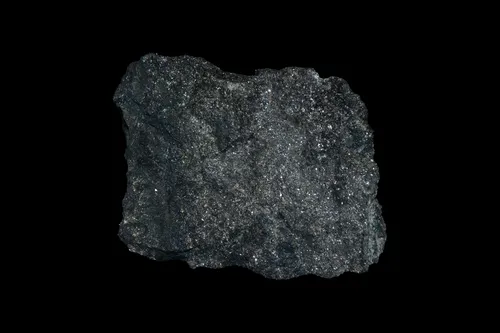
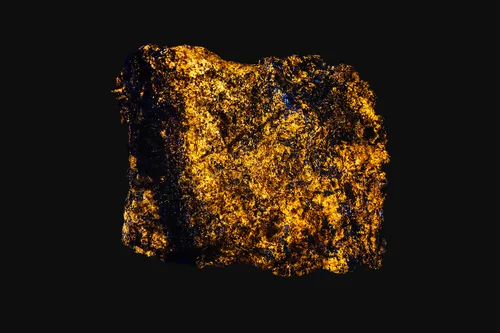
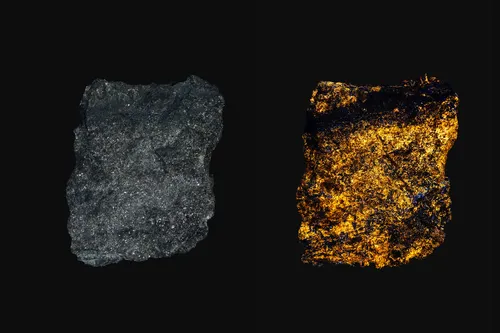
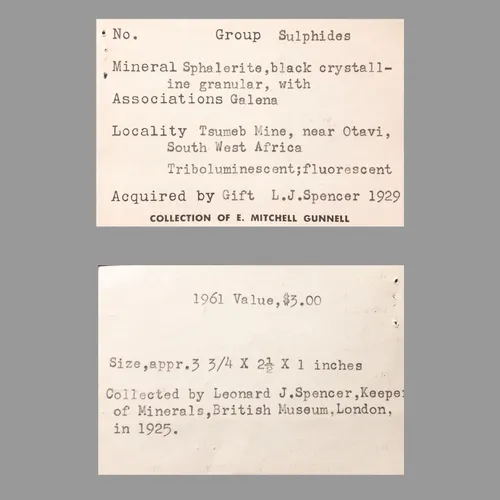
Specimen Title
Sphalerite
Associated Minerals
pyrite; quartz
Principal Mineral
Size
Cabinet; 90mm
Location in the Mine
First oxidation zone
Provenance
Spencer, L.J.; Gunnell, E.M.; New, D.; Feinglos, M.N.
Collection
MGMH; 2022.4.4748L
Collected by
L.J. Spencer; 1925
Entry Number
Specimen; TSNB455
Description
A slab of sphalerite-rich massive sulphide ore (with sphalerite crystals to 2.5 mm). Associated minerals include pyrite and quartz. The sphalerite displays intense orange fluorescence in LWUV radiation (exhibits 2 and 3).
This specimen was collected in 1925 by Leonard J. Spencer, Keeper of Minerals at the British Museum (now the Natural History Museum, London) during a visit to Tsumeb. Spencer gifted the specimen to E. Mitchel Gunnell in 1929 (Exhibit 4). It was subsequently sold to Mark Feinglos by David New. Feinglos' data card confirms that the sphalerite is also triboluminescent.
The location in the mine is not recorded. The 1925 collection date, however, indicates that it was sourced from above 9 Level, which was the deepest development at that time.
Spencer (1927) published an article on the UV fluorescence of certain zinc minerals from southern Africa and commented as follows: "The most striking fluorescent effect of all [the minerals tested] was that given by a massive granular black blende [= sphalerite] from Tsumeb, South-West Africa. This was tried because it shows a very pronounced triboluminescence: when lightly scratched with a knife-blade it gives streaks of yellow sparks. In ultraviolet rays it glows with a brilliant fiery yellow like a live coal."
While sphalerite is a common ore mineral at Tsumeb, specimen-worthy material is rare.
